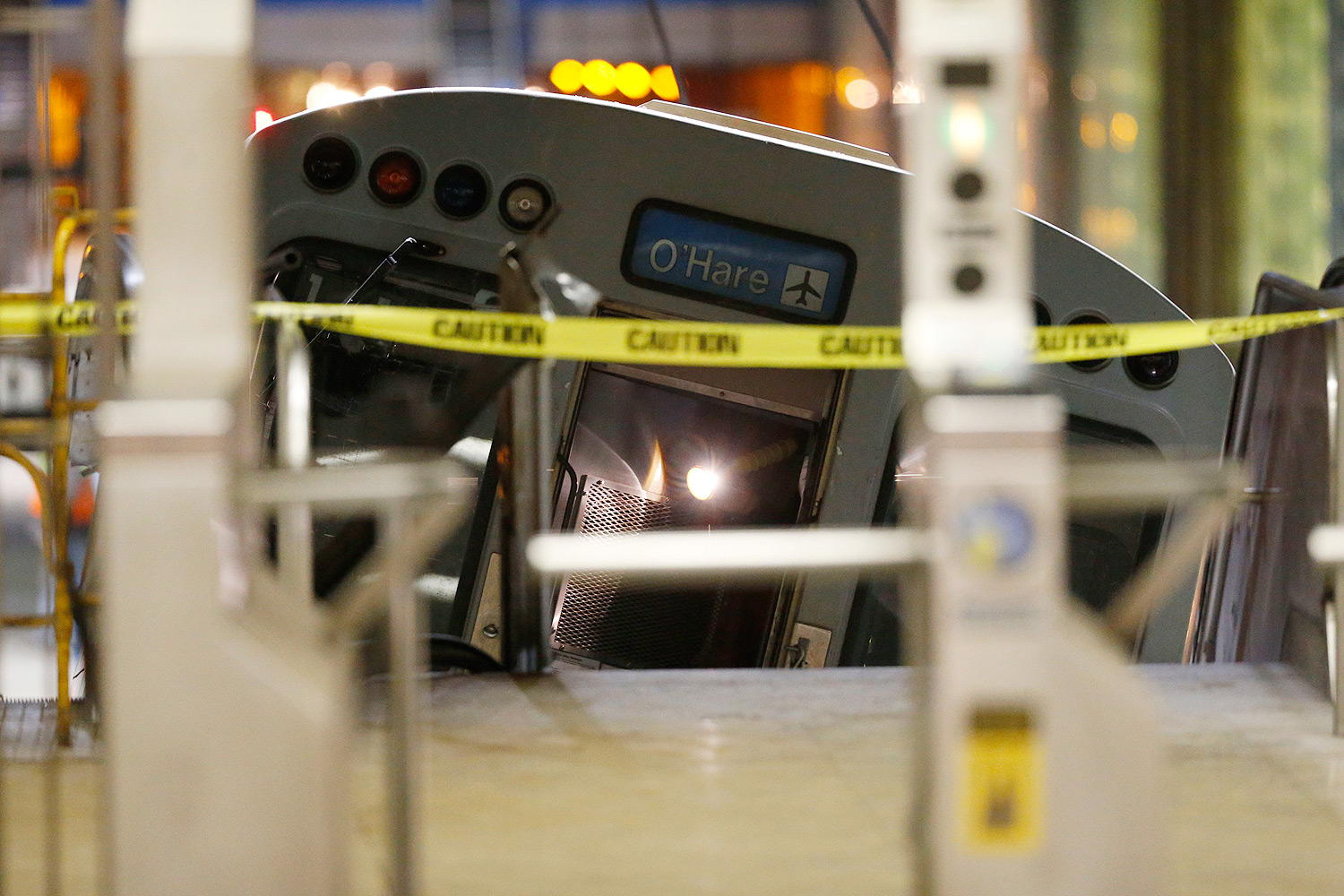A few weeks ago, Silicon Valley's most famous entrepreneur, Elon Musk, made news by announcing he'd bid to build Chicago's white whale, an express train from O'Hare to downtown. (I looked at the numbers; it's plausible he could make it profitable, though it seems risky.)
Today he's back in the news for a paradoxical reason, as reported by Wired:
“I think public transport is painful. It sucks. Why do you want to get on something with a lot of other people, that doesn’t leave where you want it to leave, doesn’t start where you want it to start, doesn’t end where you want it to end? And it doesn’t go all the time.”
“It’s a pain in the ass … That’s why everyone doesn’t like it. And there’s like a bunch of random strangers, one of who might be a serial killer, OK, great. And so that’s why people like individualized transport, that goes where you want, when you want.”
His solution to this is curious. While the O'Hare project would in theory be a train or something like it, his project in Los Angeles would involve putting "individual cars or pods on electric skates." This is another mass-transportation white whale, personal rapid transit; Schaumburg very nearly got something like it decades ago.
In Los Angeles, Musk would build a hybrid: you drive to the tunnel in your car, then get whisked along to your exit. It sounds good but the end result is hard to predict. After all, the limiting factor on interstates isn't that your car can't drive very fast, it's that there are lots of other cars. If all those cars go from moving 40 mph on the interstate at rush hour to 120 mph underground, does that mean everyone gets to where they're going faster, or does it create even worse bottlenecks at the exits to the tunnels?
That's all tangential, though, to the quote that is getting Musk dragged by transit fans: "And there’s like a bunch of random strangers, one of who might be a serial killer, OK, great."
While it's entirely likely that serial killers use public transportation, it seems like a poor place to actually do serial killing—there are lots of cameras and public employees and other transit riders. But this is just a metaphor for risk on public transportation, and it's not especially realistic, either. As a metaphor for the perception of risk on public transit, then maybe it's more effective, at least as an example of how we screw that up.
So I dug up data comparing risks incurred by traveling via vehicle versus public transit in Chicago for the year 2011—it's a bit old, but numbers don't vary wildly from year to year.
To start with, in 2011, drivers traveled 7.2 billion miles on Chicago streets in 2011. CTA riders traveled 2.1 billion miles the same year. That's about 3.4 times more vehicle miles than public-transit miles.
On to the injury data. According to IDOT, there were 119 people killed in crashes in 2011. Subtract pedestrians and cyclists killed—not to dismiss those externalities, but I'm just looking at the drivers'/passengers' risk—and you get 77 deaths. That's 16,148 drivers and passengers injured out of 77,926 total crashes.
What to compare that to? You could start with homicides on the CTA. In 2011, the CPD counted two. Much more likely is being the victim of crime. I've been injured in a failed mugging on the CTA, but never in a car crash. The Tribune looked at the 2011 data, and found 5,800 crimes reported that year, including 2,000 thefts and 800 robberies. They didn't specify the number of batteries, but it appears to be over 800 if you do some back-of-the-envelope math from their three-year data.
Of course, you can get injured just taking public transportation, too. When I wrote about this in 2014, I found 985 injuries from people using (by a very broad measure) the CTA in 2011.
Generally speaking, you're way less likely to die using public transit than using a car. If you're comparing the odds of being injured from a crash with being the victim of any crime on public transportation, then the risks seem more comparable (5,800 x 3.4 = 19,720); but if you're just comparing being in a crash, injury or not, to being the victim of any type of crime on the CTA, again, the risk is much higher from driving.
Yet there's still a common perception that public transportation is dirty and dangerous compared to driving (whether or not it's dirtier is another matter, but there's definitely less litter on CTA buses and train cars than in my car). And the reasons likely have to do with our psychology. Lack of control makes things seem riskier; risks that are chronic—like car crashes—paradoxically seem less risky.
Go back to what Musk said: "And there's a bunch of random strangers, one of who might be a serial killer, OK, great. And so that's why people like individualized transport, that goes where you want, when you want." Serial killers are scarier than their actual incidence because they're uncommon; driving is less scary than its risk because the risk is chronic. Musk is brilliant, but in some ways he's just like the rest of us.



